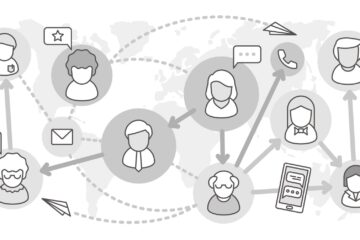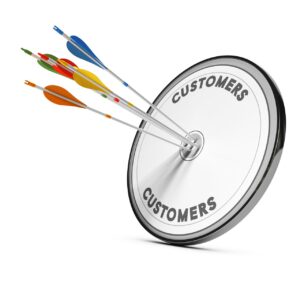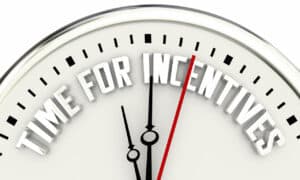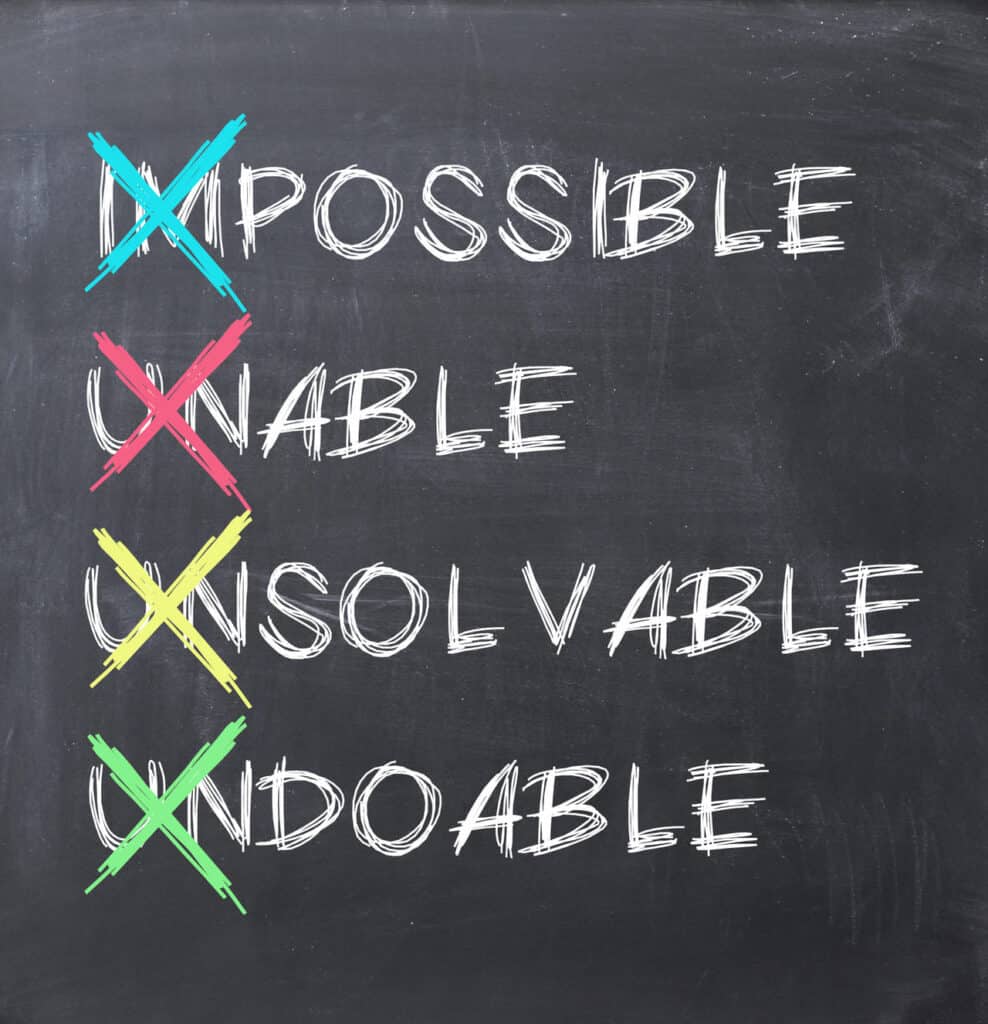Feeling swamped by the multitude of tasks each day? You’re not the only one.
Field sales can often resemble a high-stakes juggling act. With prospects to chase, follow-ups to manage, and targets to meet, staying organized isn’t just a luxury—it’s a lifeline.
But how can sales representatives ensure they’re at the top of their game, every single time? Let’s dive deep into the world of field sales organization and uncover the secrets to success.
The Digital Transformation of Field Sales
Gone are the days when a salesperson’s success was measured by the weight of the briefcase they carried or the number of doors they knocked on. The modern field sales landscape has undergone a significant transformation, driven primarily by technological advancements.
Today, the power of technology, from robust CRM systems to cutting-edge AI analytics, has redefined what it means to be a sales rep.
But amidst this digital revolution, how does one stay organized and ahead of the curve?
1. The Emergence of CRM Systems
In the past, salespeople relied on physical ledgers or basic spreadsheets to keep track of their leads and customers.
Fast forward to today, and CRM systems have revolutionized this process. These platforms provide a 360-degree view of each customer, capturing every interaction, purchase history, preference, and more.
The result? More personalized, timely, and effective engagements. No more missed appointments or lost leads; everything is systematically organized and accessible with a few clicks.
2. AI and Predictive Analytics: The Game Changers
Curious about the secret behind certain sales reps’ impeccable timing? The key could be AI and predictive analytics.
These tools help analyze massive data to predict valuable leads, grasp new market trends, and offer profound customer insights. Think of it as a crystal ball guiding reps to the right targets.
3. The Rise of Mobile Sales Tools
The ubiquity of smartphones has opened up a new frontier for sales tools. No longer are reps tied to their desks or laptops. Mobile apps, like the innovative Beest software, ensure that sales professionals have all the essential information and tools at their fingertips, no matter where they are.
From accessing customer data, and scheduling meetings, to even getting real-time analytics, these mobile tools empower sales representatives to be more agile, responsive, and effective in their roles.
Common Field Sales Challenges Rooted From Disorganization
Working in field sales is fulfilling, but it brings its own difficulties. Many of these issues arise from disorganization, which can greatly impact a sales rep’s performance and outcomes.
By recognizing the root of these challenges and implementing systematic solutions, sales professionals can optimize their processes, enhance client relationships, and boost sales outcomes.
Let’s delve into some of the most common challenges rooted in disorganization and explore ways to overcome them.
1. Missed Appointments and Follow-ups
- Cause: Without a systematic way of scheduling and tracking appointments, it’s easy to overlook meetings or appointments.
- Impact: Missed appointments can lead to lost sales opportunities and damage the trust built with potential clients.
- Solution: Utilize digital calendars and CRM tools that send reminders. Regularly review and update your schedule.
2. Inaccurate Customer Data
- Cause: Manually entering and updating customer information can lead to errors or outdated records.
- Impact: Incorrect data can result in misguided sales pitches or miscommunication, affecting customer relationships.
- Solution: Use CRM systems that allow real-time data updating and integration with other tools to ensure accuracy.
3. Inefficient Route Planning
- Cause: Planning routes on-the-fly or relying on memory can lead to inefficient travel.
- Impact: Wasted time and resources, fewer client interactions, and increased costs.
- Solution: Leverage route optimization tools that consider real-time traffic, distance, and client preferences.
4. Overlooking Sales Leads
- Cause: Without a structured system to categorize and prioritize leads, some potential clients might get neglected.
- Impact: Missed sales opportunities and reduced revenue potential.
- Solution: Implement lead-scoring techniques and use CRM tools to track and nurture leads systematically.
5. Lack of Real-time Inventory Knowledge
- Cause: Not having an updated inventory list or product knowledge at hand.
- Impact: Unable to close sales due to lack of product availability or offering outdated products.
- Solution: Use mobile apps that sync with inventory systems, providing real-time product availability and details.
6. Inconsistent Communication
- Cause: Not having a standardized communication process or tool in place.
- Impact: Misunderstandings, missed information, and a lack of trust with clients.
- Solution: Adopt unified communication platforms and establish communication protocols within the sales team.
7. Failure to Identify Cross-selling and Upselling Opportunities
- Cause: Not having a comprehensive view of the customer’s purchase history and preferences.
- Impact: Missed opportunities to increase sales and enhance customer relationships.
- Solution: Use analytics tools within CRM systems to identify potential cross-selling and upselling opportunities based on customer data.
8. Inadequate Preparation for Sales Pitches
- Cause: Not organizing and reviewing client information before meetings.
- Impact: Generic pitches that don’t resonate with the client’s needs, leading to lost sales.
- Solution: Dedicate time for pre-meeting research and utilize CRM notes and history to tailor pitches to individual client needs.
The Pillars of Field Sales Organization
In the intricate world of field sales, success hinges on a foundation built on key organizational principles. These principles, or pillars, serve as the guiding lights, directing sales reps towards efficiency, productivity, and meaningful client interactions.
Let’s delve into the core pillars that elevate field sales from mere transactions to strategic, relationship-driven endeavors.
A. Crafting Your Day with Planning and Prioritization
This means intentionally designing your daily activities to align with your goals. It involves breaking down tasks, assessing their significance, and scheduling them in a manner that maximizes productivity and effectiveness.
In the fast-paced world of field sales, every moment counts. Crafting your day ensures that you’re not just busy, but busy with purpose, focusing on tasks that drive results.
A well-prioritized day reduces the risk of overlooking potential opportunities or neglecting crucial client interactions.
- Start Early: Begin your day by reviewing your tasks. An early start gives you a head start in tackling priorities.
- Use Digital Tools: Leverage digital calendars or task management apps to organize and set reminders for your tasks.
- Categorize Tasks: Group tasks based on their nature – client meetings, appointments, research, etc.
- Prioritize by Impact: Rank tasks based on their potential impact on your goals, not just their urgency.
- Allocate Breaks: Ensure you schedule short breaks to recharge, especially between high-intensity tasks.
- Stay Flexible: While it’s essential to plan, be prepared to adjust your schedule for unexpected opportunities or challenges.
- Review and Reflect: At the end of the day, review your accomplishments and adjust the next day’s plan based on any pending tasks.
- Seek Feedback: Regularly consult with peers or mentors to gain insights on how you can further optimize your daily planning.
B. Embracing the Digital Revolution in Sales
This means recognizing and integrating the technological advancements that have transformed traditional methodologies. It’s about moving beyond conventional practices and leveraging digital platforms, like Beest.app, to streamline, enhance, and innovate processes.
With digital tools, salespeople can access real-time data, ensuring that their pitches are always relevant and timely.
The analytics provided by these tools offer invaluable insights, helping teams to refine their strategies based on actual performance metrics and customer feedback.
- Stay Updated: Regularly update yourself on the latest digital tools and platforms that can enhance your processes.
- Integration is Key: Choose tools that can easily integrate with your existing systems to ensure a seamless workflow.
- User Experience Matters: Opt for platforms with intuitive interfaces, reducing the learning curve and enhancing productivity.
- Harness the Power of Analytics: Utilize the analytics features of digital tools to gain insights, measure performance, and refine strategies.
- Prioritize Security: Ensure that the digital platforms you use adhere to the highest security standards to protect customer data.
- Engage in Training: Invest time in training sessions and workshops to fully understand and utilize the features of your digital tools.
- Stay Connected: Use cloud-based platforms like Beest to access your data and tools anytime, anywhere.
C. Strategizing for Success: Beyond Just Sales
This goes beyond the mere act of selling. It encompasses a holistic approach where every action, from route planning to client interaction, is optimized to leave a lasting impact and foster meaningful relationships.
Efficient route planning, for instance, not only saves time but maximizes opportunities for valuable face-to-face interactions.
By equipping oneself with in-depth knowledge about prospects and aligning with their needs, reps can deliver pitches that truly resonate, increasing the likelihood of conversions.
- Deep Dive into Client Profiles: Understand your prospects’ pain points, needs, and preferences to tailor your approach effectively.
- Leverage Technology: Use tools that offer route optimization and real-time traffic insights to maximize face-to-face interactions.
- Continuous Learning: Stay updated with industry trends, competitor strategies, and emerging technologies to stay ahead of the curve.
- Feedback is Gold: After every interaction, seek feedback. It provides invaluable insights for continuous improvement.
- Collaborate and Brainstorm: Regularly engage with your team to share experiences, challenges, and strategies. Collective wisdom often leads to innovative solutions.
- Focus on Relationship Building: Remember, a successful sale is the start of a relationship, not the end. Nurture these relationships for long-term success and repeat business.
D. The Power of Continuous Learning in Sales
This underscores the importance of perpetual education in a constantly evolving sales landscape.
In the fluid world of sales, adaptability is a key differentiator. Continuous learning helps reps stay ahead, equipped with the latest techniques, market insights, and technological advancements.
By being proactive learners, they can anticipate market shifts, adapt their strategies accordingly, and ensure their approaches remain relevant and effective.
- Diversify Your Learning Sources: Don’t rely solely on one medium. Engage in webinars, workshops, online courses, and industry seminars.
- Stay Updated with Tech Innovations: Platforms like Beest.app frequently introduce new features. Ensure you’re familiar with these to maximize their potential.
- Engage in Peer Learning: Collaborate with colleagues to share insights, experiences, and best practices.
- Set Learning Goals: Define what you want to learn each month or quarter and track your progress.
- Seek Feedback: After implementing new techniques or strategies, gather feedback to understand their effectiveness and areas of improvement.
- Join Industry Forums: Engage in discussions, share insights, and learn from peers in industry-specific forums or groups.
- Commit to Consistency: Dedicate specific time each week for learning. Whether it’s reading an article or attending a workshop, make learning a regular habit.
E. Relationships: The Heartbeat of Sales
At the heart of every successful sales endeavor lies the power of genuine human relationships.
Creating and cultivating relationships isn’t solely about making a sale; it’s about forming a connection that results in enduring business partnerships.
Strong relationships often result in repeat business, fostering brand loyalty and generating invaluable referrals.
- Active Listening: Pay close attention to your clients’ needs, concerns, and feedback. This shows that you genuinely care and are invested in their success.
- Consistent Communication: Regularly check in with your clients, not just when you’re making a sale. This keeps the relationship fresh and active.
- Celebrate Milestones: Recognize and celebrate significant events like anniversaries, product launches, or birthdays. It shows you value the relationship beyond just business.
- Leverage CRM Tools: Use CRM platforms to set reminders for follow-ups, track communication history, and understand client preferences.
- Build Trust Through Transparency: Always be honest with your clients, even when delivering unfavorable news. Trust is the foundation of every lasting relationship, and it’s earned through consistent honesty and reliability.
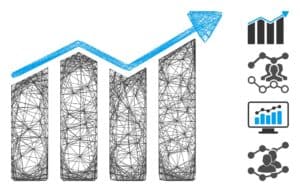
Essential Tools for Field Sales Professionals
In the fast-paced realm of field sales, having the correct tools readily available can determine whether a pitch triumphs or an opportunity slips away. As technology advances, so do the options for sales experts, providing them with the means to tackle the complexities of today’s sales environment.
Let’s explore the vital tools that every field sales professional should contemplate incorporating into their toolkit to achieve peak performance and outcomes.
1. CRM Software
CRM (Customer Relationship Management) software is a digital tool designed to manage and analyze customer interactions throughout the sales lifecycle.
It streamlines processes, ensuring that reps can cultivate and maintain relationships with prospects and clients efficiently.
Key Features and Functionalities of CRM Software
- Lead Scoring: Prioritize potential clients based on their likelihood to convert, ensuring you focus on the most promising leads.
- Automated Follow-ups: Schedule and automate messages, ensuring no lead is forgotten or neglected.
- Detailed Analytics: Gain insights into sales trends, customer behavior, and performance metrics to refine strategies.
- Seamless Integrations: Integrate with other tools and platforms, ensuring a unified and streamlined process.
- Mobile Capabilities: Access your CRM on the go, ensuring you have all the necessary information at your fingertips, anytime, anywhere.
CRM software is pivotal in ensuring that sales reps stay organized, efficient, and effective. It centralizes all customer-related data, ensuring that reps have a holistic view of each client, which aids in personalized interactions.
Moreover, with automation features, reps can ensure timely updates, leading to better relationship management and increased conversions.
5 Best CRM Software You Can Use
- Beest.app: Known for its intuitive interface, robust analytics, and mobile capabilities, making it a top choice for modern sales reps.
- Salesforce: A popular choice offering a wide range of features, including AI-driven insights and cloud-based access.
- HubSpot CRM: Offers a user-friendly platform with excellent marketing integration capabilities.
- Zoho CRM: Recognized for its multichannel communication features and AI-powered sales assistant.
- Microsoft Dynamics 365: Provides deep integration with other Microsoft products and offers AI-driven insights.
2. Digital Note Solutions
Digital note solutions are platforms or tools designed to capture, store, and synchronize notes across multiple devices electronically.
Key Features and Functionalities of Digital Note Solutions
- Cloud Synchronization: Ensure notes taken on one device are instantly accessible across all other connected devices.
- Search Functionality: Quickly locate specific notes or information within them, saving time and effort.
- Collaboration Features: Share notes with team members, allowing for real-time collaboration and feedback.
- Offline Access: Access and edit notes even without an internet connection, ensuring information is always at hand.
- Integration with Other Tools: Seamlessly integrate with CRM systems, calendars, and other essential sales tools for a unified experience.
Digital note solutions play a crucial role in ensuring that reps can quickly capture and retrieve vital information. They help eliminate the challenges of manual note-taking, reducing the risk of misplacing or forgetting crucial details.
Furthermore, with real-time synchronization and collaboration features, reps can share insights, collaborate on strategies, and ensure that everyone is on the same page.
5 Best Digital Note Solutions You Can Use
- Beest.app: Apart from its CRM capabilities, it offers integrated note-taking features, ensuring all client-related information is in one place.
- Evernote: Renowned for its robust note-taking capabilities, tagging system, and cross-device synchronization.
- Microsoft OneNote: Offers a free-form information-gathering environment and deep integration with other Microsoft Office tools.
- Notion: A versatile workspace that combines note-taking with task management and collaboration features.
- Google Keep: Known for its simplicity, color-coded notes, and seamless integration with other Google services.
3. Mobile Apps
Mobile apps for field sales are specialized software designed for smartphones and tablets to help and assist reps in their daily needs and activities.
These apps are tailored to meet the unique challenges faced by field professionals, ensuring they have all the tools they need at their fingertips.
Key Features and Functionalities Field Sales Mobile Apps
- Offline Access: Allows field reps to access crucial information and functionalities even without an internet connection.
- Real-time Updates: Receive instant notifications about leads, appointments, and other essential updates.
- Integration Capabilities: Seamlessly connect with other tools like CRM systems, digital note solutions, and email platforms.
- Location-Based Insights: Get information about nearby prospects, optimize routes, and plan meetings efficiently.
- Task Management: Schedule, track, and manage tasks, ensuring nothing falls through the cracks.
Mobile apps are indispensable for modern field reps, providing a centralized platform to manage tasks, leads, and appointments on the go. With the right app, sales professionals can enhance their productivity, responsiveness, and overall efficiency, ensuring they never miss an opportunity.
5 Best Mobile Apps for Field Sales You Can Use
- Beest.app: A comprehensive field sales management tool with an intuitive interface, robust analytics, and seamless integration capabilities.
- Salesforce Mobile: Offers a wide range of features tailored for sales reps, from lead management to real-time analytics.
- HubSpot Mobile: Provides a user-friendly platform with excellent marketing and integration capabilities.
- Zoho CRM Mobile: Recognized for its multichannel communication features and AI-powered sales assistant.
- Pipedrive Mobile: Focuses on sales pipeline management, ensuring reps can track deals and communicate with clients effectively.
4. Route Optimization Tools
Route optimization tools are specialized software solutions designed to provide the most efficient routes for field reps visiting multiple client locations.
Key Features and Functionalities of Route Optimization Tools
- Real-time Traffic Updates: Adjust routes based on current traffic conditions to avoid delays.
- Multiple Stop Planning: Efficiently plan routes that include multiple client visits in one trip.
- Fuel Cost Estimation: Calculate and minimize fuel expenses for planned routes.
- Time Estimation: Provide accurate estimates of travel and arrival times to ensure punctuality.
- Integration with Calendars: Sync with personal or work calendars to align route planning with scheduled appointments.
Route optimization tools are pivotal in maximizing the efficiency of a sales rep’s day, ensuring they spend more time with clients and less on the road.
By reducing travel time and associated costs, these tools directly contribute to enhanced productivity and profitability in field sales.
5 Best Route Optimization Tools You Can Use
- Beest.app: Apart from its CRM capabilities, it offers advanced route optimization features tailored for field professionals.
- Route4Me: A popular choice for its ease of use and comprehensive multi-stop route planning capabilities.
- Badger Maps: Designed specifically for field sales, it integrates with CRM tools and offers visual route planning.
- MapAnything: Powered by Salesforce, it combines CRM data with route optimization, providing a unified solution.
- OptimoRoute: Known for its scalability, it’s suitable for both individual reps and large sales teams.
5. Sales Analytics Platforms
Sales analytics platforms are specialized software solutions that help analyze and present sales data, offering actionable insights to enhance sales strategies.
Key Features and Functionalities of Sales Analytics Platforms
- Performance Metrics: Track and analyze individual and team performance over specific periods.
- Trend Analysis: Identify trends to understand market shifts and customer preferences.
- Customer Behavior Insights: Dive deep into customer interactions, purchase histories, and feedback to tailor approaches.
- Forecasting Tools: Predict future sales based on historical data, helping in setting realistic targets.
- Data Visualization: Represent complex sales data in easy-to-understand charts, graphs, and dashboards.
Sales analytics platforms empower sales reps with data-driven insights, helping them to make informed decisions and optimize their strategies. By understanding past performance and predicting future trends, these platforms ensure sales professionals are always a step ahead, ready to seize opportunities.
Moreover, with accurate data at their fingertips, sales reps can confidently engage with clients, backed by concrete information.
5 Best Sales Analytics Platforms You Can Use
- Beest.app: Beyond its CRM and route optimization features, it offers robust sales analytics to drive decision-making.
- Tableau: Renowned for its data visualization capabilities, it provides deep insights into sales data.
- Looker: A modern platform that integrates seamlessly with various data sources, offering real-time sales analytics.
- Domo: Combines business intelligence, data integration, and visualization in one platform tailored for sales insights.
- Sisense: Known for its drag-and-drop interface, it makes sales data analysis accessible even for non-tech users.

Final Thoughts | Staying Organized for Field Sales Success
Staying organized in field sales is a journey, not a destination. With the right mindset, tools, and strategies, you can navigate the challenges and seize the opportunities.
Ready to elevate your sales game? The road to success starts with staying organized. Book your free demo with Beest.app today!

